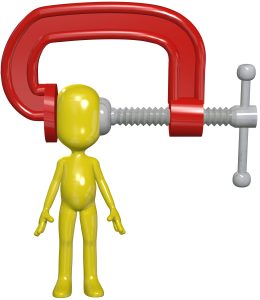Welcome!
 If you’ve reached this page, it’s probably for one of two reasons:
If you’ve reached this page, it’s probably for one of two reasons:
You’re an educator who works with middle school, high school, or college students, and I’ve sent you this link so you can get more information about what I can offer them,
or
You’re an educator who works with middle school, high school, or college students, and someone else sent you this link so you could see what I can offer them.
Either way, welcome! I hope that I’ll be able to help your students, their parents, and you.
Many of us have had a student who struggles with issues outside our area of expertise. It’s causing them stress, but we’re not trained for the issues they’re having, and the solutions we have don’t seem to be helping.
As a college teacher, I have often struggled with how to help students who are dealing with issues beyond my training and experience – students with financial issues, medical problems, family difficulties, or other things that get in the way of their learning, but weren’t things I had the training to deal with. As an academic coach, however, I have the ability to refer my students to other professionals who can handle the things I can’t.
I want to offer you some solutions for the students you have who are struggling with stressors that you can’t control, but who also struggle with the academic demands of school. This struggle may be caused by a simple and solvable problem: lack of skill sets for school success. This is most likely to show up when a student has hit one of the “pinch points” of the educational system.
What’s a Pinch Point?
 A pinch point is when the expectations a student needs to meet suddenly change, but they weren’t prepared for those changes. I see this happen most often at these four times:
A pinch point is when the expectations a student needs to meet suddenly change, but they weren’t prepared for those changes. I see this happen most often at these four times:
- Moving from elementary school to middle school
- Moving from middle school to high school (freshman year)
- Starting the junior year in high school
- Starting college
At each of these pinch points, what the student is expected to know, do, and produce in school changes significantly, but many times students don’t have support in learning the skills and resources necessary to make the shift. As a result, they’re stuck trying to figure out new problems using old and unusable skill sets, which leads to frustration.
Middle school requires much more organization than elementary school, for example, and learning to manage multiple classes, classrooms, and teachers. High school requires new skills like note-taking and time management that weren’t really important before. The junior year of high school is when college-prep pressure starts to build. And when a student reaches college, much of what used to be important (memorization and multiple-choice tests) goes right out the window, and a whole new set of expectations shows up (application, analysis, extension, and synthesis of what they’re learning).
In all four cases, they’re trying to handle situations that require skill sets and knowledge that they just don’t have yet.
Why Don’t Students Have These Skills?
 Our educational system tends to assume that kids will just “pick up” these skills as they go through school, without having to learn them in a systematic, structured way. Some kids do – but many kids don’t. And the ones that don’t are the ones that face increased stress and anxiety as they try to plow through this daunting mountain of new expectations and tasks.
Our educational system tends to assume that kids will just “pick up” these skills as they go through school, without having to learn them in a systematic, structured way. Some kids do – but many kids don’t. And the ones that don’t are the ones that face increased stress and anxiety as they try to plow through this daunting mountain of new expectations and tasks.
Some kids also “pick up” the skills they need, but only until a certain point. When the expectations change, the skills the student has no longer work, and unless they can continue to “pick up” those skills rapidly, they’ll experience stress and anxiety too. (I see this a lot with “gifted” kids.)
Helping Students Succeed
 What I want to offer you is a tool set for your students who are in this group. As an academic professional and an academic coach, I help students learn time management, disciplined study practices, effective study skills, good habit-formation, organization, and planning (among many other skills). If you will refer these students and their parents to me, I will help them learn the tools they need to reduce their school stress.
What I want to offer you is a tool set for your students who are in this group. As an academic professional and an academic coach, I help students learn time management, disciplined study practices, effective study skills, good habit-formation, organization, and planning (among many other skills). If you will refer these students and their parents to me, I will help them learn the tools they need to reduce their school stress.
When you refer a student and their parent to me, here is what I will give them:
- A free 20-minute consultation with the parent
- A free one-hour consultation with the student
- One-on-one intensive, personal skills coaching
- Web-based training courses focusing on particular skills
- Accountability for the student
This also gives you some benefits, namely:
- Reduction of school-related stressors for the student allows you to focus on what the student needs to learn (content) instead of what they have to do in order to make that content “stick.”
- Collaboration: With parent permission, we can also compare our notes and keep each other updated on issues that show up in coaching or the classroom, especially if those issues are more related to the other person’s expertise, to further support the student.
If you have learning-disabled students who need help, or students who are younger than the middle-school, high-school or college-age students I work with, I am also part of a coaching network, and there are coaches in that network who work specifically with LD and younger students, too. If I can’t help your student, I will reach out to my network to find someone who can.
Please Get in Touch!
 If you’re interested in forming a referral partnership after reading this, please don’t hesitate to contact me. We can schedule a phone call to discuss what you might need from me, and I can send along some materials to make referral easier (brochures, business cards, etc.). You can also send parents to this link: http://www.undergradeasier.com/for-parents, if that’s easier for you and for them.
If you’re interested in forming a referral partnership after reading this, please don’t hesitate to contact me. We can schedule a phone call to discuss what you might need from me, and I can send along some materials to make referral easier (brochures, business cards, etc.). You can also send parents to this link: http://www.undergradeasier.com/for-parents, if that’s easier for you and for them.
Thank you for taking the time to follow the link and read through to this point. I’m available at adam@undergradeasier.com for any questions, or to schedule time to talk. I look forward to hearing from you!
Adam G. Sanford, Ph.D.
Anti-Boring Approach™ Coach
